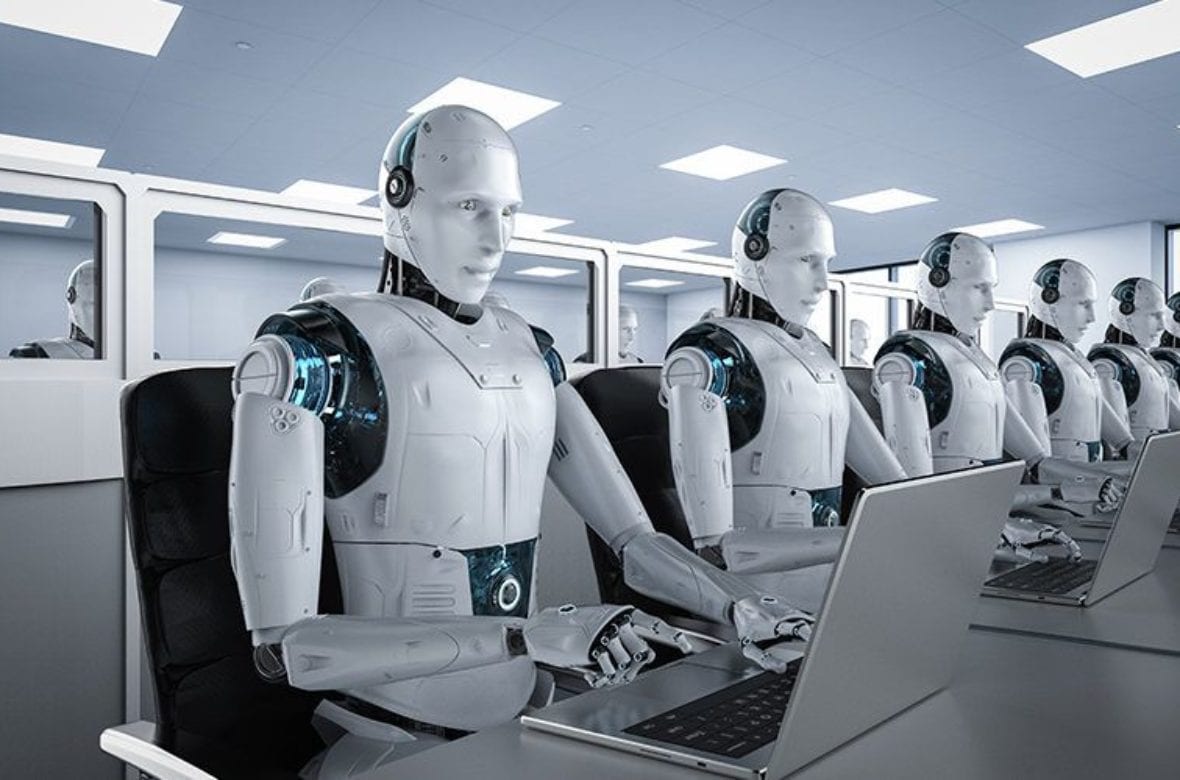1957Views

Artificial Intelligence & Its Effects on Jobs| Pros & Cons
Artificial Intelligence and its effects on Job Industry
Artificial Intelligence is a branch of computer science associated with building smart machines capable of performing tasks that typically require human intelligence. From decision-making and language processing to problem-solving and data interpretation, AI is rapidly transforming how we work, communicate, and build careers.
The tech industry, and indeed most sectors, have experienced a significant shift due to AI adoption. Today, artificial intelligence is expanding across industries with high potential for automation—such as manufacturing, logistics, healthcare, and finance. For students and young professionals, this means career paths are being redefined, and the skills required to succeed are changing rapidly.
To stay relevant in this dynamic landscape, future professionals must develop critical capabilities such as AI literacy, data analysis, and technological adaptability.
VBS Mumbai: Preparing Students for an AI-Driven World
Vivekanand Business School (VBS Mumbai), recognized among the top PGDM colleges in India, is committed to preparing students for this evolving future through AI-integrated education, skill-based learning, and real-world exposure. VBS offers a specialized PGDM in Business Analytics, a program designed to help future managers interpret data, make informed decisions, and lead effectively in AI-powered business environments.
This curriculum isn’t just about technology—it’s about cultivating a mindset of agility, innovation, and resilience.
Industries at Risk & the Need for Upskilling
Industries and sectors most likely to take a hit in terms of employment include manufacturing, logistics, transportation, hospitality, and other service-based domains where repetitive tasks dominate. Major economies embracing AI and automation are witnessing a steady decline in low-skill job roles.
According to the World Economic Forum, approximately 78 million jobs were expected to be displaced by 2022 due to automation. Companies such as Infosys and Cognizant have already taken such steps, automating lower-level jobs and reducing their workforce while retaining high-skilled professionals for more strategic roles.
Yet, it’s not all doom and gloom. The same report projected that 58 million new jobs would be created as a result of AI and automation. These roles will require high-level technical skills, problem-solving ability, and a deep understanding of digital tools—signifying a growing demand for future-ready professionals.
Future Careers Demand Future Skills
As automation continues to reshape industries, the job market will become more competitive. However, students and professionals equipped with the right skills—AI literacy, critical thinking, and adaptability—will find themselves in demand.
Businesses must now prioritize continuous training and reskilling to remain competitive. Beyond qualifications, companies are actively seeking candidates who show digital fluency, agility, and a willingness to adapt to evolving workplace dynamics.
Higher Education’s Role in Skill Development
The transformation must begin early. Colleges and universities play a vital role in embedding digital awareness and technical skills into their curriculum. This is reinforced by India’s National Education Policy (NEP), which emphasizes skill-based learning and the integration of technology across all levels of education.
Vivekanand Business School, Mumbai empowers students through its industry-focused curriculum, experiential learning model, and strong emphasis on digital readiness. With cutting-edge specializations like Vivekanand PGDM Business Analytics, the institute ensures that its graduates are not only employable but also future leaders in a tech-driven economy.
For students pursuing management, engineering, or any professional program, understanding and engaging with AI is no longer optional—it is essential.
Innovation, Not Elimination
Artificial Intelligence may replace traditional job functions, but it also fosters innovation, new industries, and novel career opportunities. It’s a tool that amplifies human potential, not diminishes it. Students must embrace these changes and engage in modern, tech-driven projects that prepare them for success.
As it is said:
“For every creation, there has to be destruction of the old.”Deepesh S Jain
PGDM 2020-22
Vivekanand Business School


